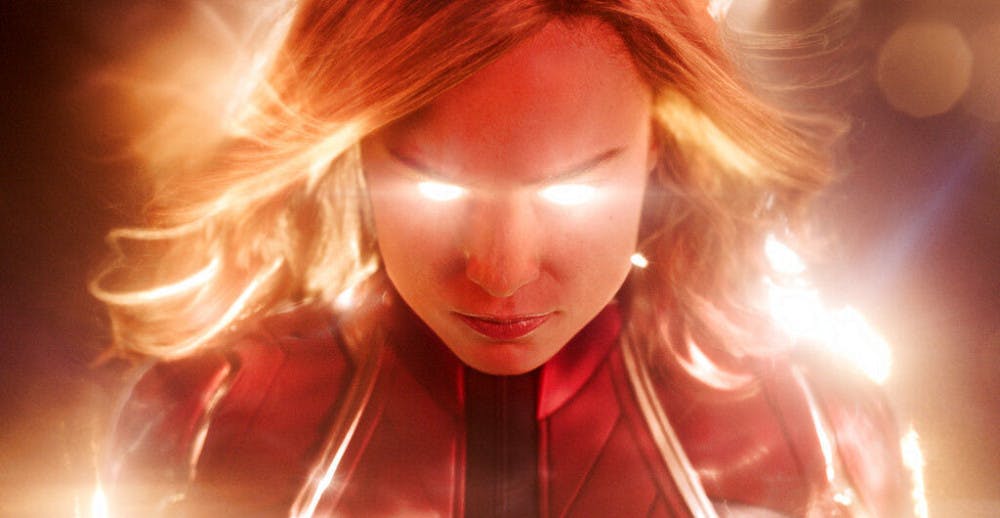When the latest Marvel movie, “Captain Marvel,” was released, there was a good amount of articles that said something like this: “What a great, strong female lead for girls to see on the big screen.” This struck me as odd since Captain Marvel is a superhuman who can fly, dwell in outer space and shoot energy blasts out of her hands. I find this to be a strange role model for anyone, let alone girls searching for a female heroine in their lives. The character seems more super than human, after all.
Indeed, how could a young girl watch Captain Marvel in computer-generated flames, soaring through space, and say, “I want to be just like her!” How can anyone relate to that? I’m fine with sci-fi and fantasy, but the greatest of that genre always has a deeply human focus. We never think hobbits are inhuman, even though they technically are. We never feel detached from Leia, Luke or Han, as if they are strange space creatures.
The great film critic Roger Ebert once said about “Star Wars” that “the characters are not themselves - they are us. We are looking out through their eyes, instead of into them…” What he meant is “Star Wars” is a human drama placed in space. The reason why we can relate to the fears, desires and actions of the characters is that they aren’t so different from us. That’s what makes “Star Wars” so good.
And, quite honestly, it’s what makes most of Marvel so bland to me. Rather than watching fellow humans live relatable human lives and share our human struggles, we watch Thor, a god, smite thousands of anonymous enemies and the Hulk wrestle with megamonsters. Of course, Marvel gives us the origin stories of our favorite heroes to help us relate to them, but naturally, we are watching the origins of superhumans who can do impossible things with great ease. Captain America can survive a plane crash without any fatal injuries, for instance.
The appeal of Marvel is also what makes it unappealing. We go to the movies so we can witness superhuman feats. We want whole cities in ruins and battles between Earth and space. We want absurd objects tossed around like baseballs and thousands of enemies dead on the streets like fallen leaves. The more cosmic the tension and the more galaxies involved, the better.
But notice what this does. In order to accommodate the whole galaxy, you must take more time away from the human aspects of the stories. In other words, things become impersonal when Thanos can appear on any planet at any time and alter reality with a stone or snap of his fingers and kill half of all living creatures. In order for sci-fi or fantasy to work, we must connect with the characters, even if we cannot connect with their worlds. And to connect with a character, they must be robustly human, even if they are not, for example, Yoda or Dobby.
It is difficult to connect with Marvel’s universe precisely for this reason. The Russo brothers are usually lauded for their ability to juggle good storytelling with enough quality dialogue for high, perhaps too high, amounts of characters. This is exactly my point. We praise Marvel for its size and think it is a genuine achievement to fit dozens of superheroes in one movie. I think it is one of Marvel’s biggest downfalls.
A huge movie with two dozen characters who inhabit multiple galaxies and cost hundreds of millions of dollars for special effects will most likely overlook one thing: people. We are limited beings who live quiet, humble lives. We cannot ignite and fly through space, shooting lasers from our hands. We are not limitless. Marvel should remember that.
Scott Stinson is a UF English senior. His columns normally appear on Mondays.
This image released by Disney-Marvel Studios shows Brie Larson in a scene from "Captain Marvel." (Disney-Marvel Studios via AP)






